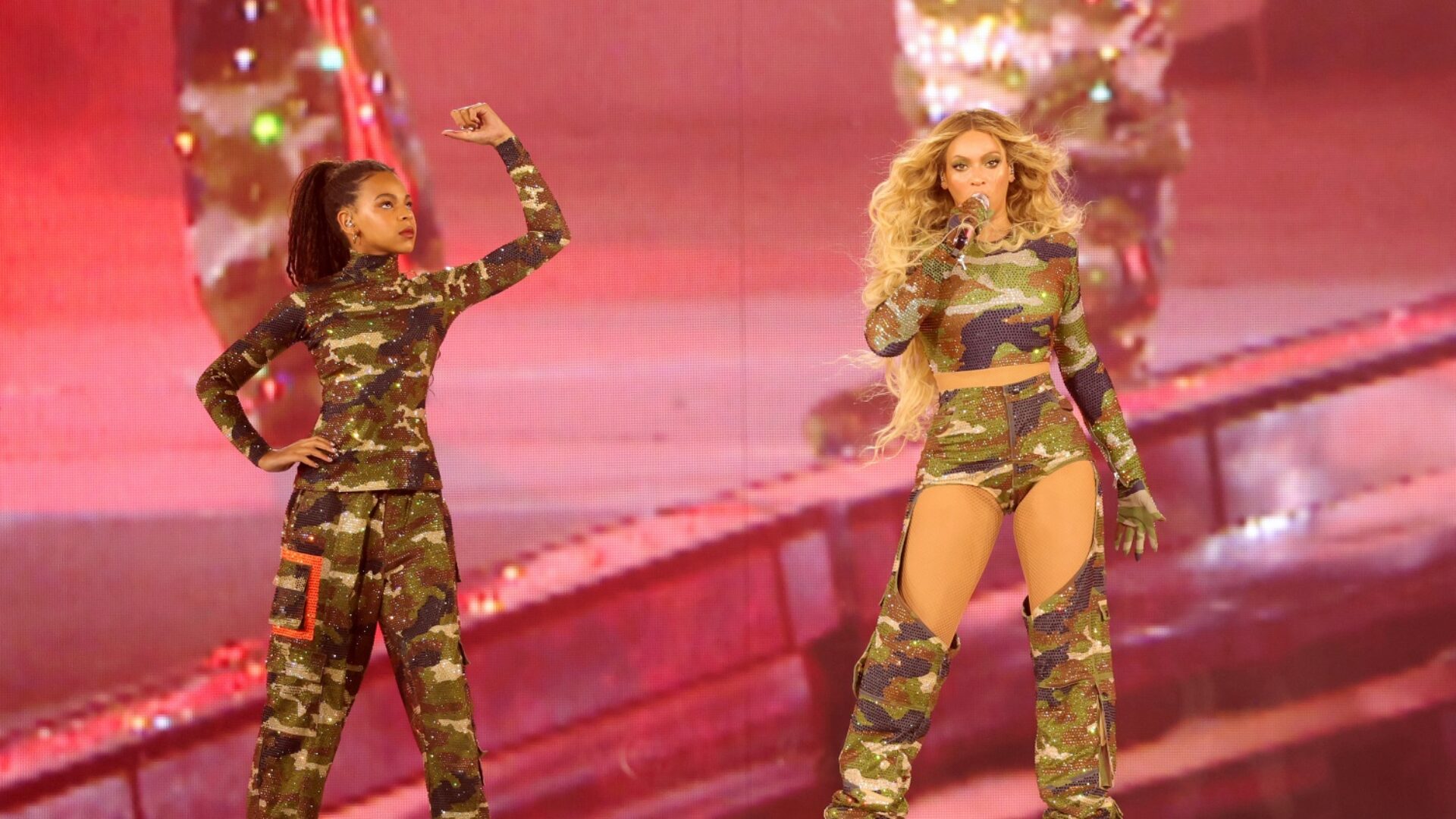
When Beyoncé revealed she was pregnant on stage during the 2011 MTV Video Music Awards, Blue Ivy Carter became the center of attention before she was born. Though there’s an overflow of praise and inside jokes about Blue Ivy being the one calling the shots, the sentiments haven’t always been positive.
Throughout the journey of Beyoncé’s pregnancy with Blue Ivy, a flood of rumors about the songstress grew. Whether it was about whether she carried her baby or not or if she was even pregnant at all, the conspiracies and scrutiny continued to build.
On January 7, 2012, Beyoncé gave birth to Blue Ivy. Beyoncé entering motherhood broke the internet, but it also brought more eyes on her newborn. To no fault of her own, the moment Blue Ivy entered the world, she was picked apart for things out of her control.
From a young age, Black girls are taught that our hair is our crown. Yet, whenever photos of Blue Ivy surfaced online, her hair was the hot topic of conversation. Trolls would use terms like “nappy” or “unkempt” to describe her curls, but the criticism didn’t end there, as people attacked her features, too.
For decades, Black girls were told that their natural tresses were unruly and hard to manage. Many were pressured or forced to relax their hair to be more manageable. According to the National Library of Medicine, studies show that 41 percent of African American girls aged 1 to 15 wore relaxed hair, and 46 percent had their first relaxer between ages 4 and 8.
Society deemed 4A-4C curls as something that needed to be controlled. Blue Ivy faced a multitude of instances where adults sought to criticize her appearance, all before reaching the age of two.
It’s no secret that Black women and girls have been picked apart from their talent to their flaws since the beginning of time. During Blue Ivy’s formative years, the internet’s cruel commentary grew. Discourse consisted of her beauty, hair and later, even her performances.
While Blue Ivy didn’t choose the circumstances, she’s now maneuvering what it means to be a child in the public eye, all the while contending with the added layer of criticism due to her looks.. With that heavy burden on her shoulders, it was time for her to regain her power. In a cruel twist of irony, even as Beyoncé creates anthems promoting self-love, acceptance, and confidence, trolls continue to unleash a relentless wave of vitriol directed at her firstborn child.
The second we saw Blue Ivy grow throughout the years, she faced heavy texturism and featurism from countless people – who were three times her age, might we add. At the mere age of 11, Blue Ivy has had to garner the strength to face the public.
With her recent debut on stage with Beyoncé at the Renaissance World Tour, it was more than an Instagram-worthy mommy-daughter moment. In the song “My Power,” Blue Ivy emerges with the hook, “They’ll never take my power, my power, my power,” serving as the moment she owns who she is, despite the years worth of backlash she faced.
The moment went viral for the excitement we all felt watching Blue Ivy perform alongside her mom. “She told me she was ready to perform, and I told her no,” Beyoncé says in Renaissance: A Film by Beyoncé.
Rather than responding like the typical tween and giving up, a choice she had every right to make, Blue Ivy opted to use the hurtful comments as fuel to continue, undeterred by the negativity expressed by online critics.“This that nappy, this that urb’/ This that kinfolk, this that skinfolk/ This that war, this that bloodline/ On the front line, ready for war,” Beyoncé sang before Blue’s appearance onstage.
We saw a completely different Blue Ivy Carter when she reached the tour’s last show. She clearly found her strength in being herself, regardless of how others felt.
Whether she knows it or not, Blue Ivy shows her stans in the Ivy League that they are enough and that their features and hair are beautiful, no matter what society has to say about it. Blue Ivy Carter continues to disrupt the status quo unapologetically, showing us that we have the ability to reclaim our power.
About Kenyatta: Clark Atlanta University and Medill School alumna Kenyatta Victoria is the Girls United writer covering everything from news, pop culture, lifestyle, and investigative stories. When not reporting, she’s diving deep into her curated playlists or binging her favorite comfort shows.